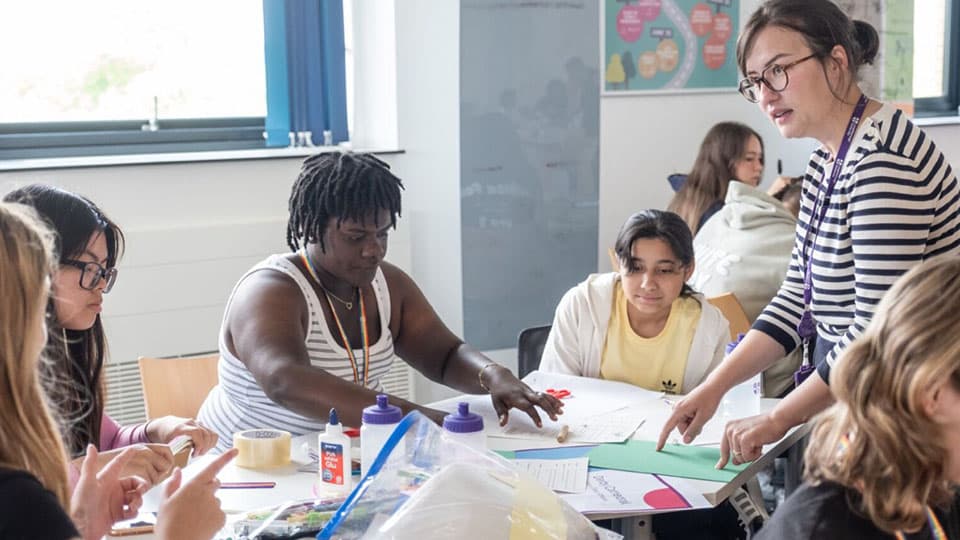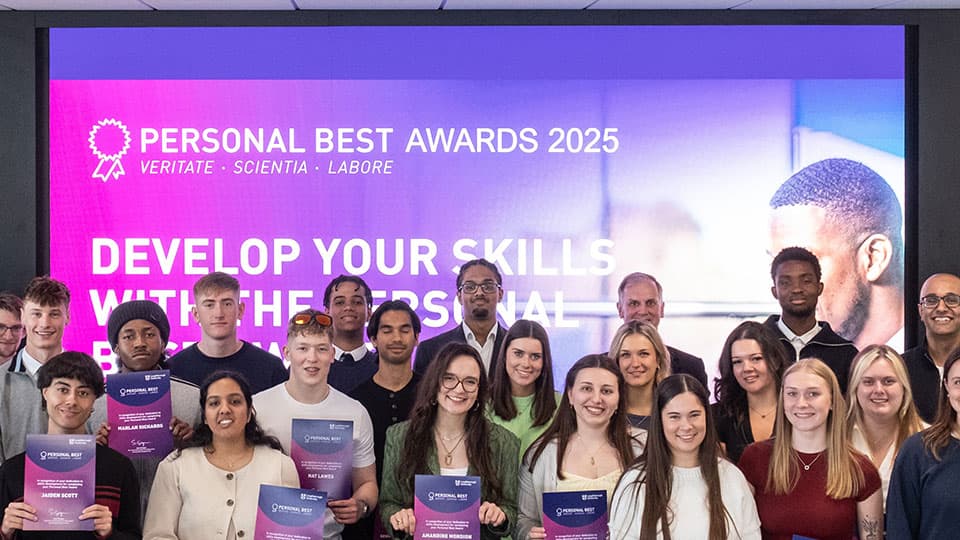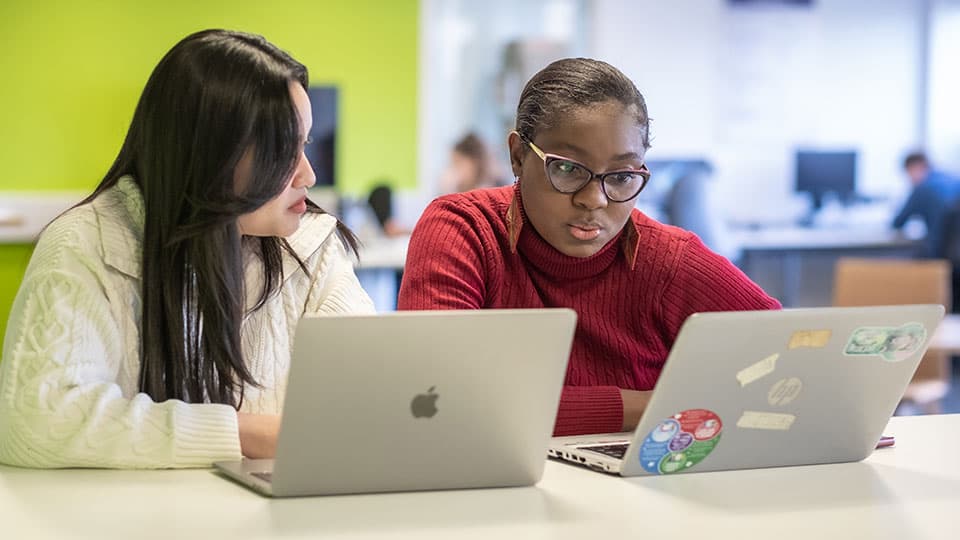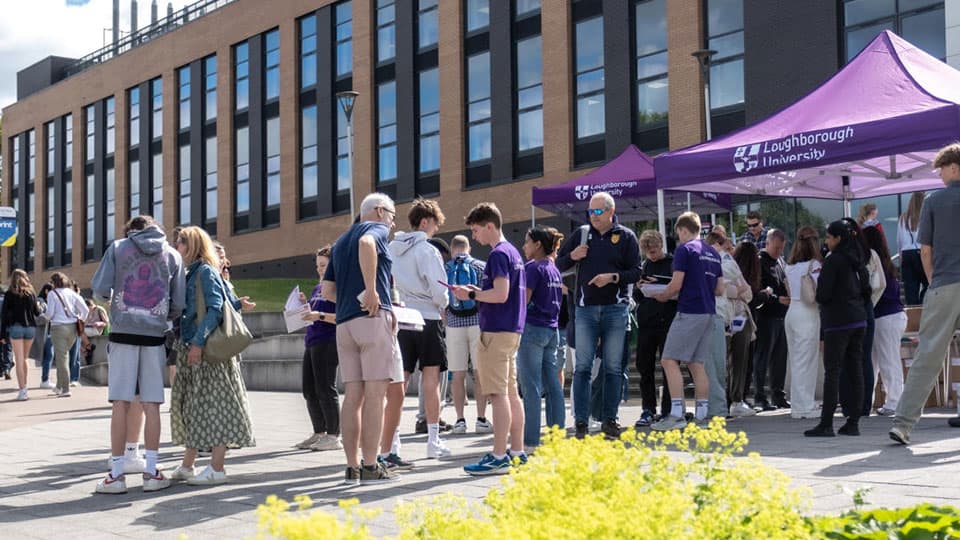
Advancing equality of opportunity requires not only ambition, but evidence, evaluation, and sustained collective action.
Over the past year, we have made significant progress in preparing for the implementation of our new Access and Participation Plan (APP). This report captures the distance we’ve travelled - not only in meeting our commitments, but in embedding a culture of rigorous self-reflection, meaningful evaluation and evidence-led practice.
Our approach is guided by a clear set of principles for how the APP will be governed and delivered. These principles - shaped by our commitment to equity, evidence-based action, and continuous improvement - are designed to ensure that our efforts are sustainable, strategic, and genuinely impactful.
Central to this approach is our belief that evaluation is not an add-on, but a core driver of progress. And this report is one example of how we are using evidence not only to reflect, but to act. Evaluation enables us to test our approaches, understand what works, and ensure that our strategies evolve in response to evidence.
None of this is possible without the dedication and insight of colleagues across the University. I would like to extend my sincere thanks to everyone who has contributed to the development, delivery, and evaluation of the initiatives featured in this report. Your work is central to the progress we have made - and to the impact we aim to achieve.
‘So what? What next?’
As we look ahead, the work captured in this report is not an endpoint, but a very solid starting point from which to make impactful interventions forward. The "so what" of this report lies in how we use its insights to inform ongoing change; the "what next" is our shared responsibility to build on progress. We invite colleagues, partners, and sector peers to engage with the findings, challenge our thinking, and collaborate with us as we continue this work together.
Professor Sam Grogan
Pro Vice-Chancellor
(Education and Student Experience)
Introduction
This Access and Participation Impact Report shows the impact of our work to address barriers to higher education and support students from diverse and less advantaged backgrounds to succeed. As part of our commitment to the Office for Students (OfS), we publish this annual report that focuses on our Access and Participation Plan (APP) initiatives - supporting openness, accountability, and sector learning.
The report features a series of evidence-based case studies that illustrate the evaluation and findings from key initiatives across the lifecycle - from access through to success and progression. For each initiative, we detail the aims, the evaluation methods used and the insights gained. These evaluations are critical in shaping our future approach, helping us refine what works, adapt what doesn’t, and continuously improve the impact of our work.
2024/25 Highlights
While we recognise there is still more to do, we’re proud of the progress made so far. This report highlights some of our key developments and achievements from the 2024/25 academic year:
Supporting learners in schools and colleges
Engaged 17,968 target learners
from 202 target schools and colleges.*
2,538 Access Loughborough contextual offers made in 2024/25.
Successfully launched flagship pilot metacognition programme
working with 300 pupils across four schools.**
*Our target learners and target schools share characteristics which are likely to make them eligible for activities delivered as part of our Access and Participation Plan (APP)
**in partnership with University of Leicester, De Montfort University and Pathways UniConnect
Supporting students at Loughborough
£3.87m invested
in access and participation targeted financial support.
Almost 7,000 students participated
in one or more Student Success Academy (SSA) activities.
Over 400 students
referenced in our Access and Participation Plan completed a Part I - Industrial Placement Year.
Looking Ahead – our new Access and Participation Plan (APP)
Building on our impact over the last year, our new APP, covering the period between September 2025 to August 2029, sets out our approach to improve equality of opportunity for specific student groups at different stages of their educational journey.
The plan includes nine objectives and four targets and is focused on:
- Increasing the proportion of students from less advantaged backgrounds at Loughborough.
- Ensuring continuation and completion rates for mature students and those with a reported mental health condition do not decline.
- Reducing the degree awarding gap for Black heritage students, and maintaining parity for students from Asian heritage backgrounds compared to White students.
- Narrowing the degree awarding gap between students from the most and least advantaged backgrounds.
- Reducing disparities in placement year uptake between Black, Asian, and White students.
- Ensuring that progression to graduate employment or further study for students from less advantaged backgrounds does not fall behind their more advantaged peers.
Evaluation Strategy
Our evaluation strategy is a key tool for improving the impact of our initiatives and providing equality of opportunity for our students. At Loughborough, we are making a sustained effort to embed robust evaluation at every level of our activity. In keeping with Loughborough’s heritage in Sporting Excellence, we have strived to set our bar high when it comes to evaluation quality and quantity.
We recognise that in order to reach this high bar, we must collaborate. Therefore, this year, we have:
- Identified an evaluation skills base and expertise among academic staff introducing higher quality, robustness, and innovation to our evaluation practice.
- Commissioned third party training from TASO on small n methods - Contribution Analysis and Qualitative Comparative Analysis - ensuring that the strength of our findings can remain high, no matter the size of the intervention.
- Demonstrated our commitment to evaluation by creating, reviewing and finalising over 30 Theories of Change - a commitment we made to the OfS in our new APP – as well as collecting evaluation data for all our initiatives.
Explore the impact of our work throughout the student journey
Our access and participation activities involve the whole student lifecycle: we work with schools and colleges to promote equitable access to higher education, deliver a variety of initiatives to enhance student success, and provide comprehensive support for our students' employability and progression from university. Learn more about our work and its evaluation at each of these stages below.




